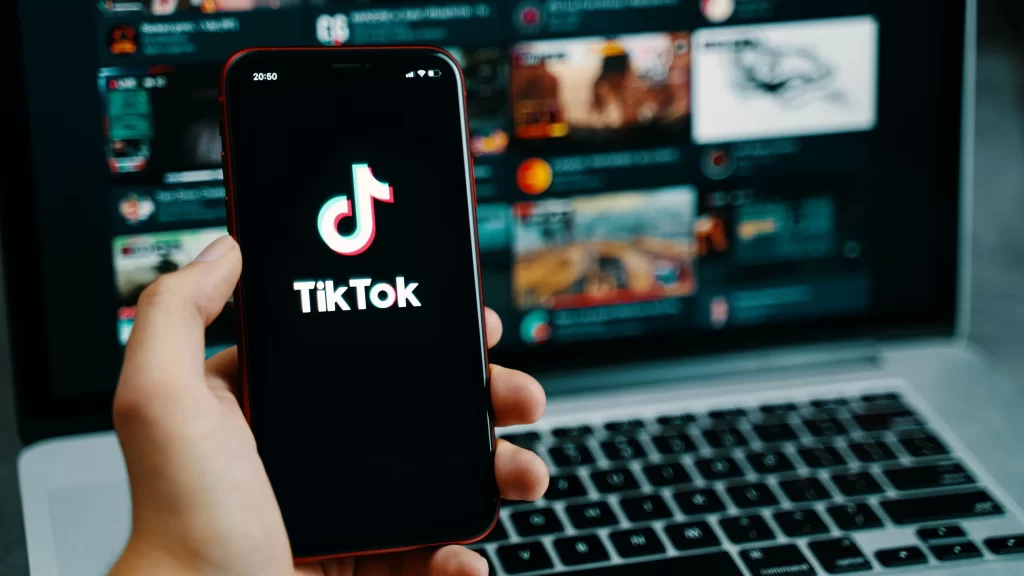The U.S. government doesn’t have a say in what you download unless you use a government device. Starting Aug. 15, U.S. House of Representatives staffers are banned from using all ByteDance apps on government devices.
TikTok’s already out, but now the ban includes a handful of other apps you or someone in your life might be using.
◾ CapCut: Video editing tools and filters.
◾ Hypic: Photo editing tools and filters.
◾ Lark: Collaboration app designed for work.
◾ Lemon8: Social media app focused on fashion, beauty, travel, food and other lifestyle categories.
It all comes down to ByteDance’s ties to Communist China. It’s based in Beijing and is required by Chinese law to give the government access to collected data.
Let’s dive deeper into what they collect
If you think the ByteDance paranoia is overblown, here’s the laundry list of data you give up every time you scroll TikTok:
◾ Your name, age, username, email address, password, phone number and location.
◾ Your IP address, cellphone carrier, time zone, the model of your device and the OS you use.
◾ Biometric identifiers, like facial IDs and voiceprints.
◾ The content of your messages, plus exactly when you send, receive and read them.
◾ If you buy stuff from the TikTop shop, your purchase information, including your credit card numbers, billing and shipping addresses.
◾ Your activities on other websites and apps (or in stores), including info on what you purchased.
◾ File names and types.
◾ Your keystroke patterns and rhythms.
◾ Objects and scenery that show up in your videos, including tourist attractions, shops and other landmarks.
◾ The web pages you visit the most and how you interact with them.
◾ Any text, images and videos on your clipboard.
◾ Information about your videos, images and audio.
TikTok also embeds data into images and ads to track the time and date you view a page, complete with a description. The amount of data TikTok collects is so extensive that it can come dangerously close to cloning your entire phone.
Where TikTok stores its data has also been a major red flag for Congress. Information collected in the U.S. is connected straight to servers in China, though the company says they have changed their systems to store American data in the U.S.
What about Temu?
Last year, one of my warnings about the mega-popular shopping app went viral. The hype is starting to fade, but Temu was the most downloaded app of its kind in the U.S. in 2023.
Temu’s tagline – “Shop like a billionaire” – refers to the low, low prices on everything from clothing to home goods to electronics. Though the company is based in the U.S., Temu is owned by PDD Holdings, which is based in China. And that company also owns Pinduoduo, which was removed from the Google Play store for containing malware.
As you shop, Temu can:
◾ Monitor activity on other apps.
◾ Track your notifications.
◾ Reads private messages.
◾ Change settings.
Depending on what you enable, it gets full access to all your contacts, calendars and photo albums, plus your social media accounts, chats and texts.
Do this now
It’s up to you, of course, what apps to keep on your phone. You may feel comfortable simply limiting permissions. But you may want to go a step further.
Delete apps from your Android phone:
◾ Long-press an app, then tap App Info > Uninstall.
◾ Go to Settings > Apps & Notifications to see a list of your apps and delete them the same way.
◾ Or open the Google Play Store app and navigate to Menu > My apps & games. Tap on the app and hit Uninstall.
◾ NOTE: Samsung and OnePlus phones have an Uninstall option under the app shortcuts menu.
Delete apps from your iPhone
◾ Touch and hold an app, then tap Remove App > Delete App > Delete.
◾ Or use the App Library to get a curated list of your apps grouped by category. Swipe past the last page of your Home screen to access it. Tap and hold the app, then select Delete App > Delete.



